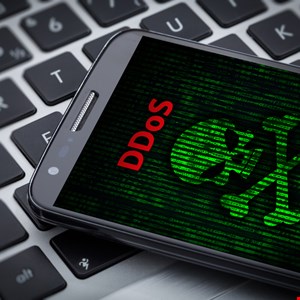- These are the Memorial Day headphones deals I recommend most to family and friends
- 4 gadgets I'm bringing to the beach this summer - and why they make such a big difference
- I'm a laptop expert and these are the Memorial Day laptop deals I'd scoop up ASAP
- These are my 13 favorite Memorial Day lawn and outdoor deals right now
- The most comfortable noise-canceling earbuds I've tested are on sale (and they're only $150)
NCA: Kids as Young as Nine Have Launched DDoS Attacks

UK police have launched another initiative designed to persuade young people not to get involved in cybercrime after claiming that children as young as nine have launched DDoS attacks in the past.
The National Crime Agency (NCA) has teamed up with Schools Broadband, part of ISP the Talk Straight Group, on a new education campaign.
It said that students searching for specific terms associated with DDoS and other cybercrimes would be shown a warning message and suggested redirection to the Cyber Choices website. The aim is to educate young people about the Computer Misuse Act and the consequences of cybercrime.
A trial scheme is said to have significantly reduced searches for terms such as “stresser” and “booter” associated with DDoS, and it will now be rolled out nationwide to over 2000 primary and secondary schools.
The NCA said data from its National Cyber Crime Unit (NCCU) reveals a 107% increase in reports from the police cyber prevent network of students deploying DDoS attacks from 2019 to 2020.
The median age for referrals to the NCCU’s Prevent team is reportedly 15, but some offenders are as young as nine.
“Education is a key pillar in preventing crime and these messages highlight the risks and consequences of committing cyber offenses, which can result in a criminal record,” said John Denley, deputy director of the NCA’s NCCU.
“Law enforcement plays a critical role in tackling cybercrime and keeping the country safe. School outreach is important to educate a younger audience and this initiative will continue to help divert young people away from criminality.”
A National Cyber Security Centre (NCSC) report from 2019, which polled 430 schools across the UK, found that over a fifth (21%) reported unauthorized use of computers, networks or servers by pupils – almost twice the number (11%) who claimed the same of staff.
The report warned that such schools might be at risk of failing GDPR compliance as a result

